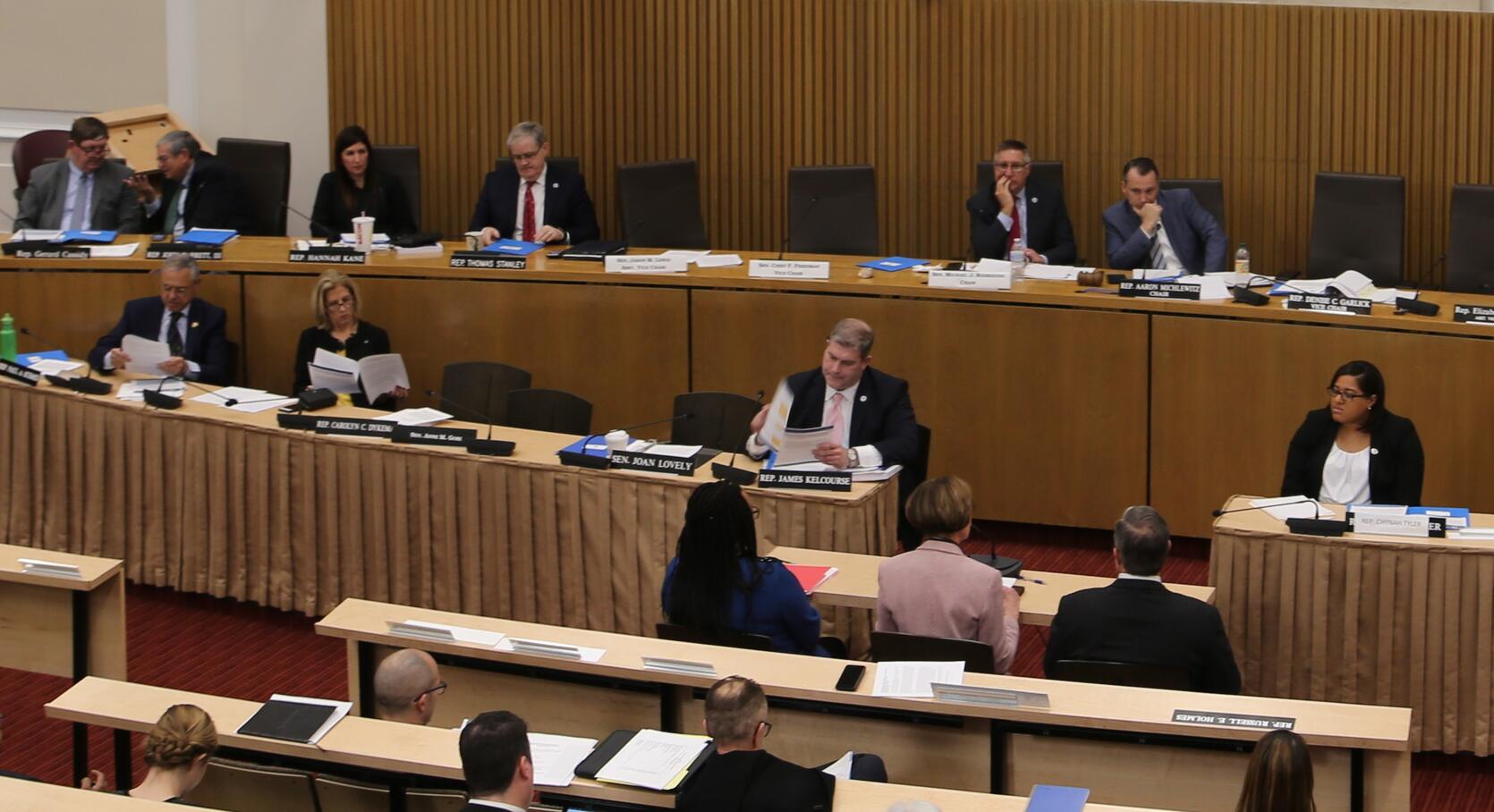- Office of the State Auditor

Good afternoon Chairman Rodrigues, Chairman Michlewitz, and members of the Committee. It is an honor to join you today to share our recent successes and how the budget request we have put forward will allow us to build upon these successes in the coming fiscal year.
The core mission of my office is to make government work better. It is a mission we take seriously and one that is ingrained in every aspect of our work. We are a relatively small agency, with just over 200 employees spread across the state in our offices in Chicopee, Marlborough, Brockton, and Boston. Through our work, we seek to not only find instances in which government agencies and contractors have fallen short of their responsibilities to the taxpayers of the Commonwealth but just as importantly, find opportunities and solutions that allow agencies to serve their constituents better.
We measure our success by two key metrics:
First, is dollars and cents—that is the improper spending or missed savings opportunities by state government. The taxpayers of the Commonwealth deserve a state agency that works every day on their behalf to ensure that government uses their money wisely, challenges every expense, and consistently looks for cost-efficient ways to deliver services, without sacrificing quality.
Here are a few examples of the kind of results we have achieved over the last twelve months:
- The Department of Conservation and Recreation has hired a debt collection agency to collect past due and unpaid user fees and lease payments, which we estimate ran into hundreds of thousands of dollars;
- The Department of Unemployment Assistance is beginning to intercept payments from the Commonwealth to state contractors that are delinquent in their unemployment contributions, after we found that up to $18 million could have been recovered for the unemployment insurance trust fund;
- Cities and towns have been reimbursed for 2018 early voting costs after we determined that the costs of fulfilling this mandate amounted to more than $1 million dollars;
- MassHealth is tightening its system of edits in order to detect and reject payment for unbundled and unnecessary drug testing claims, which it estimates will results in several million dollars’ worth of annual savings; and
- Numerous civil settlements and criminal convictions have resulted from the Bureau of Special Investigations’ collaboration with public benefits agencies and law enforcement at all levels in the detection of public assistance fraud, investigations which in FY18 identified more than $14 million worth of fraud.
These are just a few of the ways that our work enhances fiscal integrity and accountability.
The second metric we use to measure success is the human impact of our work. These are matters that may lack decimals and zeros, but make a demonstrable improvement on the lives of some of the Commonwealth’s most vulnerable residents. On this front, since I last testified before the committee:
- The Department of Children and Families reports that it is following our recommendation that the MassHealth database be regularly consulted to ensure that social workers are aware of all medical treatment sought by children, especially when it involves potential injury to the child. Further, it has redefined “critical incident” to include sexual assault, and those cases are now being reported to the Office of the Child Advocate, so that she may have a more complete view of the many challenges facing the Commonwealth’s children.
- The Executive Office of Elder Affairs is expanding training for, oversight of, and communications with its contractors to ensure they are properly reporting incidents of potential elder abuse or neglect so they can be appropriately investigated and, if indicated, referred for prosecution; and
- Several district attorneys’ offices report they have improved their data collection and analysis of their juvenile diversion programs to assess the success of these programs and guide future enhancements.
All of this success by the staff at the state Auditor’s office has been made possible by your support of this agency, and we at the OSA thank you for recognizing that accountability requires investment. Human capital is our most important asset, and frankly my biggest challenge is to attract, train, and retain the competent professionals we need to perform this important state function.
Past investments in my office by this committee have helped us develop and deploy sophisticated data analytics tools that empower us to more effectively identify root causes of problems in agency operations, to prevent them from recurring. To get the most from the tools, we need talent.
For FY20, we are seeking a 5% increase in our administrative line item and 3% increases in those that support the Division of Local Mandates, the Bureaus of Special Investigations, the Medicaid Audit Unit, the BSI Data Analytics Unit. The totality of the additional $892,000 over last year’s appropriation of $19,179,532 is to support existing positions and training within the OSA.
I ask that this body, and the Legislature as a whole, maintain the commitment to the office and to the partnership we have developed over the past 8 years to make government work better and to enhance public trust in government.
Often, our work identifies issues that are not a result of flawed protocols or lax oversight at an agency, but rather outdated laws or inadequate resources—problems that can only be solved through legislative action. In these instances, know that my office always stands ready as a resource and willing partner to you to address these problems and improve services for the residents of the Commonwealth.
I thank you for your service to the residents and taxpayers of the Commonwealth, and I am happy to answer any questions you may have.